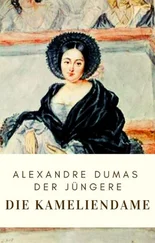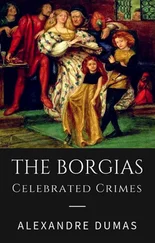Alexandre Dumas - Celebrated Crimes (Complete)
Здесь есть возможность читать онлайн «Alexandre Dumas - Celebrated Crimes (Complete)» — ознакомительный отрывок электронной книги совершенно бесплатно, а после прочтения отрывка купить полную версию. В некоторых случаях можно слушать аудио, скачать через торрент в формате fb2 и присутствует краткое содержание. Жанр: literature_19, foreign_antique, foreign_prose, на английском языке. Описание произведения, (предисловие) а так же отзывы посетителей доступны на портале библиотеки ЛибКат.
- Название:Celebrated Crimes (Complete)
- Автор:
- Жанр:
- Год:неизвестен
- ISBN:нет данных
- Рейтинг книги:3 / 5. Голосов: 1
-
Избранное:Добавить в избранное
- Отзывы:
-
Ваша оценка:
- 60
- 1
- 2
- 3
- 4
- 5
Celebrated Crimes (Complete): краткое содержание, описание и аннотация
Предлагаем к чтению аннотацию, описание, краткое содержание или предисловие (зависит от того, что написал сам автор книги «Celebrated Crimes (Complete)»). Если вы не нашли необходимую информацию о книге — напишите в комментариях, мы постараемся отыскать её.
Celebrated Crimes (Complete) — читать онлайн ознакомительный отрывок
Ниже представлен текст книги, разбитый по страницам. Система сохранения места последней прочитанной страницы, позволяет с удобством читать онлайн бесплатно книгу «Celebrated Crimes (Complete)», без необходимости каждый раз заново искать на чём Вы остановились. Поставьте закладку, и сможете в любой момент перейти на страницу, на которой закончили чтение.
Интервал:
Закладка:
Such was the reward of the devoted patriotism of Baron d'Aygaliers!
Meantime Roland's troops had increased greatly in number, having been joined by the main body of those who had once been commanded by Cavalier, so that he had, about eight hundred men at his disposal. Some distance away, another chief, named Joanny, had four hundred; Larose, to whom Castanet had transferred his command, found himself at the head of three hundred; Boizeau de Rochegude was followed by one hundred, Saltet de Soustel by two hundred, Louis Coste by fifty, and Catinat by forty, so that, in spite of the victory of Montrevel and the negotiations of M. de Villars, the Camisards still formed an effective force of eighteen hundred and ninety men, not to speak of many single troopers who owned no commander but acted each for himself, and were none the less mischievous for that. All these troops, except these latter, obeyed Roland, who since the defection of Cavalier had been recognised as generalissimo of the forces. M. de Villars thought if he could separate Roland from his troops as he had separated Cavalier, his plans would be more easy to carry out.
So he made use of every means within his reach to gain over Roland, and as soon as one plan failed he tried another. At one moment he was almost sure of obtaining his object by the help of a certain Jourdan de Mianet, a great friend of his, who offered his services as an intermediary, but who failed like all the others, receiving from Roland a positive refusal, so that it became evident that resort must be had to other means than those of persuasion. A sum of 100 Louis had already been set on Roland's head: this sum was now doubled.
Three days afterwards, a young man from Uzes, by name Malarte, in whom Roland had every confidence, wrote to M. de Paratte that the Camisard general intended to pass the night of the 14th of August at the chateau Castelnau.
De Paratte immediately made his dispositions, and ordered Lacoste-Badie, at the head of two companies of dragoons, and all the officers at Uzes who were well mounted, to hold themselves in readiness to start on an expedition at eight o'clock in the evening, but not revealing its object to them till the time came. At eight o'clock, having been told what they had to do, they set off at such a pace that they came in sight of the chateau within an hour, and were obliged to halt and conceal themselves, lest they should appear too soon, before Roland had retired for the night. But they need not have been afraid; the Camisard chief, who was accustomed to rely on all his men as on himself, had gone to bed without any suspicion, having full confidence in the vigilance of one of his officers, named Grimaud, who had stationed himself as sentinel on the roof of the chateau. Led by Malarte, Lacoste-Badie and his dragoons took a narrow covered way, which led them to the foot of the walls, so that when Grimaud saw them it was already too late, the chateau being surrounded on all sides. Firing off his gun, he cried, "To arms!" Roland, roused by the cry and the shot, leaped out of bed, and taking his clothes in one hand and his sword in the other, ran out of his room. At the door he met Grimaud, who, instead of thinking of his own safety, had come to watch over that of his chief. They both ran to the stables to get horses, but three of their men – Marchand, Bourdalie, and Bayos – had been before them and had seized on the best ones, and riding them bare-backed had dashed through the front gates before the dragoons could stop them. The horses that were left were so wretched that Roland felt there was no chance of out-distancing the dragoons by their help, so he resolved to fly on foot, thus avoiding the open roads and being able to take refuge in every ravine and every bush as cover. He therefore hastened with Grimaud and four other officers who had gathered round him towards a small back gate which opened on the fields, but as there was, besides the troops which entered the chateau, a ring of dragoons round it, they fell at once into the hands of some men who had been placed in ambush. Seeing himself surrounded, Roland let fall the clothes which he had not yet had time to put on, placed his back against a tree, drew his sword, and challenged the boldest, whether officer or private, to approach. His features expressed such resolution, that when he thus, alone and half naked, defied them all, there was a moment's hesitation, during which no one ventured to take a forward step; but this pause was broken by the report of a gun: the arm which Roland had stretched out against his adversaries fell to his side, the sword with which he had threatened them escaped from his hand, his knees gave way, so that his body, which was only supported by the tree against which he leaned, after remaining an instant erect, gradually sank to the ground. Collecting all his strength, Roland raised his two hands to Heaven, as if to call down the vengeance of God upon his murderers, then, without having uttered a single word, he fell forward dead, shot through the heart. The name of the dragoon who killed him was Soubeyrand.
Maillie, Grimaud, Coutereau, Guerin, and Ressal, the five Camisard officers, seeing their chief dead, let themselves be taken as if they were children, without thinking of making any resistance.
The dead body of Roland was carried back in triumph to Uzes, and from there to Nimes, where it was put upon trial as if still alive. It was sentenced to be dragged on hurdles and then burnt. The execution of this sentence was carried out with such pomp as made it impossible for the one party to forget the punishment and for the other to forget the martyrdom. At the end the ashes of Roland were scattered to the four winds of heaven.
The execution of the five officers followed close on that of their chief's body; they were condemned to be broken on the wheel, and the sentence was carried out on all at once. But their death, instead of inspiring the Calvinists with terror, gave them rather fresh courage, for, as an eye-witness relates, the five Camisards bore their tortures not only with fortitude, but with a light-heartedness which surprised all present, especially those who had never seen a Camisard executed before.
Malarte received his 200 Louis, but to-day his name is coupled with that of Judas in the minds of his countrymen.
From this time on fortune ceased to smile on the Camisards. Genius had gone with Cavalier, and, faith with Roland. The very day of the death of the latter, one of their stores, containing more than eighty sacks of corn, had been taken at Toiras. The next day, Catinat, who, with a dozen men, was in hiding in a vineyard of La Vaunage, was surprised by a detachment of Soissonnais; eleven of his men were killed, the twelfth made prisoner, and he himself barely escaped with a severe wound. The 25th of the same month, a cavern near Sauve, which the rebels used as a store, and which contained one hundred and fifty sacks of fine wheat, was discovered; lastly, Chevalier de Froulay had found a third hiding-place near Mailet. In this, which had been used not only as a store but as a hospital, besides a quantity of salt beef, wine, and flour, six wounded Camisards were found, who were instantly shot as they lay.
The only band which remained unbroken was Ravanel's, but since the departure of Cavalier things had not gone well with his lieutenant.
In consequence of this, and also on account of the successive checks which the other bodies of Camisard troops had met with, Ravanel proclaimed a solemn fast, in order to intercede with God to protect the Huguenot cause. On Saturday, the 13th September, he led his entire force to the wood of St. Benazet, intending to pass the whole of the next day with them there in prayer. But treason was rife. Two peasants who knew of this plan gave information to M. Lenoir, mayor of Le Vigan, and he sent word to the marechal and M. de Saville, who were at Anduze.
Читать дальшеИнтервал:
Закладка:
Похожие книги на «Celebrated Crimes (Complete)»
Представляем Вашему вниманию похожие книги на «Celebrated Crimes (Complete)» списком для выбора. Мы отобрали схожую по названию и смыслу литературу в надежде предоставить читателям больше вариантов отыскать новые, интересные, ещё непрочитанные произведения.
Обсуждение, отзывы о книге «Celebrated Crimes (Complete)» и просто собственные мнения читателей. Оставьте ваши комментарии, напишите, что Вы думаете о произведении, его смысле или главных героях. Укажите что конкретно понравилось, а что нет, и почему Вы так считаете.












